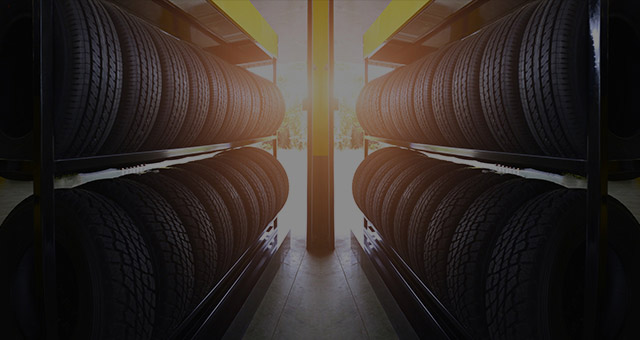Tire Service: Understanding Tire Pressure Tracking Equipments
Recognizing Tire Stress Monitoring Equipments (TPMS) is a critical facet of preserving ideal automobile efficiency and safety on the roadway. With developments in automotive innovation, TPMS has ended up being a basic attribute in modern automobiles, providing real-time details on tire stress degrees.

Relevance of TPMS
The significance of Tire Stress Surveillance Equipments (TPMS) exists in their capability to improve vehicle safety and security and performance through real-time surveillance of tire stress degrees. Maintaining the correct tire stress is vital for making certain optimal handling, braking, and overall security of a vehicle. TPMS provides chauffeurs with immediate responses on any overinflated or underinflated tires, enabling for prompt changes to be made.
Components of TPMS
Consisting of numerous necessary aspects, a Tire Pressure Monitoring System (TPMS) functions as an advanced safety and security attribute in modern cars. The primary elements of a TPMS include sensing units, a control component, and a warning indicator. Sensors are commonly situated in the tire shutoff stem or connected to the wheel assembly, where they measure tire stress and send information to the control module. If it finds significantly reduced pressure in any of the tires, the control module processes this info and causes a warning. The caution sign, often a sign on the control panel, informs the chauffeur to inspect the damaged tire or tires. Some progressed TPMS versions additionally display the real tire stress analyses for each and every tire, giving chauffeurs with real-time information to ensure ideal tire performance and safety. By monitoring tire pressure continuously, TPMS assists prevent crashes, decreases tire wear, and improves fuel effectiveness, making it a crucial component for automobile safety and performance.
Kinds of TPMS

On the various other hand, indirect TPMS relies upon the car's wheel rate sensors to keep track of tire pressure. This system discovers underinflation by comparing the rotational speeds of the wheels. Indirect TPMS is less expensive than straight TPMS, as it utilizes existing sensing units within the vehicle.
While direct TPMS offers a lot more exact readings, indirect TPMS is simpler in design and typically calls for much less maintenance. Both systems have their advantages and restrictions, and the choice between them commonly depends on variables such as expense, vehicle make, and individual choice. Recognizing the differences between these two kinds of TPMS can assist lorry owners make notified decisions relating to tire upkeep and safety and security.
TPMS Maintenance Tips
Reliable upkeep of TPMS is necessary for making certain optimal performance and security of your lorry. Consistently checking the TPMS sensors for any type of damage or deterioration is critical. Make certain that the sensors are free and clean from particles that can disrupt their functioning. Additionally, it is suggested to inspect the sensor batteries periodically and change them as required to assure exact analyses. Conduct routine look at the Get the facts tire stress levels and contrast them with the TPMS analyses to ensure they are constant. If there are any kind of disparities, rectify the system adhering to the maker's guidelines. Moreover, throughout tire rotation or replacement, make certain that the TPMS elements are dealt with carefully to stop any type of potential damage. Lastly, if the TPMS alerting light brightens on the control panel, resolve the problem promptly by checking the tire pressures and the total system for any faults. By sticking to these maintenance suggestions, you can prolong the life expectancy of your TPMS and enhance the security of your driving experience.
Advantages of Appropriate Tire Stress
Maintaining proper you can try this out tire pressure, as stressed in TPMS Maintenance Tips, is critical for reaping the countless advantages connected with optimal tire stress degrees. Among the main benefits of keeping the correct tire pressure is improved gas effectiveness. When tires are Resources appropriately pumped up, there is less moving resistance, bring about much better fuel economy. Additionally, proper tire stress guarantees also tire wear, prolonging the life expectancy of the tires and advertising more secure driving problems. With the right tire pressure, automobiles likewise have better handling and traction, particularly in unfavorable weather. This can enhance general driving efficiency and security for the vehicle driver and guests. Preserving optimal tire stress can contribute to a smoother and extra comfortable ride by decreasing vibrations and sound caused by underinflated tires. In conclusion, the benefits of appropriate tire pressure exceed simply tire long life; they incorporate enhanced fuel performance, improved security, far better car performance, and total driving convenience.
Verdict
To conclude, understanding tire stress tracking systems (TPMS) is crucial for preserving ideal tire stress and making sure automobile safety and security. By identifying the significance of TPMS, being familiar with its components, understanding the different kinds offered, adhering to proper maintenance pointers, and realizing the advantages of keeping appropriate tire stress, chauffeurs can enhance their driving experience and extend the lifespan of their tires. Proper tire pressure is essential to secure and effective vehicle procedure.
